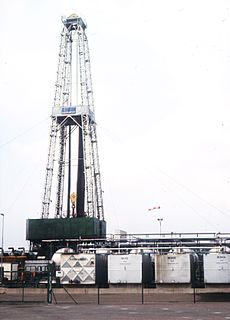
Brunei is a country with a small, wealthy economy that is a mixture of foreign and domestic entrepreneurship, government regulation and welfare measures, and village tradition. It is almost totally supported by exports of crude oil and natural gas, with revenues from the petroleum sector accounting for over half of GDP. Per capita GDP is high, and substantial income from overseas investment supplements income from domestic production. The government provides for all medical services and subsidizes food and housing. The government has shown progress in its basic policy of diversifying the economy away from oil and gas. Brunei's leaders are concerned that steadily increased integration in the world economy will undermine internal social cohesion although it has taken steps to become a more prominent player by serving as chairman for the 2000 APEC forum. Growth in 1999 was estimated at 2.5% due to higher oil prices in the second half.

A partnership is an arrangement where parties, known as partners, agree to cooperate to advance their mutual interests. The partners in a partnership may be individuals, businesses, interest-based organizations, schools, governments or combinations. Organizations may partner to increase the likelihood of each achieving their mission and to amplify their reach. A partnership may result in issuing and holding equity or may be only governed by a contract.

Hydrocarbon exploration is the search by petroleum geologists and geophysicists for deposits of hydrocarbons, particularly petroleum and natural gas, in the Earth using petroleum geology.

PETRONAS, short for Petroliam Nasional Berhad, is a Malaysian oil and gas company that was founded on 17 August 1974. Wholly owned by the Government of Malaysia, the corporation is vested with the entire oil and gas resources in Malaysia and is entrusted with the responsibility of developing and adding value to these resources. Petronas is ranked among Fortune Global 500's largest corporations in the world. Fortune ranks Petronas as the 75th largest company in the world in 2013. Fortune also ranks Petronas as the 8th most profitable company in the world and the most profitable in Asia.

The Iraq Petroleum Company (IPC), known prior to 1929 as the Turkish Petroleum Company (TPC), is an oil company which, between 1925 and 1961, had a virtual monopoly on all oil exploration and production in Iraq. Today, it is jointly owned by some of the world's largest oil companies and is headquartered in London, England.

Sonatrach (Arabic:سوناطراك) is an Algerian government-owned company formed to explore the hydrocarbon resources of the country. It has some concessions in Libya, Mauritania, Peru, Yemen and Venezuela. Its diversified activities cover all aspects of production: exploration, extraction, transport, and refining. It has diversified into petrochemistry and the desalination of seawater.
Project finance is the long-term financing of infrastructure and industrial projects based upon the projected cash flows of the project rather than the balance sheets of its sponsors. Usually, a project financing structure involves a number of equity investors, known as 'sponsors', a 'syndicate' of banks or other lending institutions that provide loans to the operation. They are most commonly non-recourse loans, which are secured by the project assets and paid entirely from project cash flow, rather than from the general assets or creditworthiness of the project sponsors, a decision in part supported by financial modeling. The financing is typically secured by all of the project assets, including the revenue-producing contracts. Project lenders are given a lien on all of these assets and are able to assume control of a project if the project company has difficulties complying with the loan terms.

Oil and Gas Development Company Limited commonly known as OGDCL is a Pakistani multinational oil and gas company. It has a primary listing on the Pakistan Stock Exchange, and secondary listing on the London Stock Exchange. Established in 1961 by the Government of Pakistan, it was turned into a public listed company on 23 October 1997. Today it is involved in exploring, drilling, refining and selling oil and gas in Pakistan. It is the market leader in terms of reserves, production and acreage. It is based on Jinnah Avenue, Blue Area in Islamabad, with the Government of Pakistan holding 74% stake in the company. Rest are held by private investors. In 2013, it has revenue of Rs. 223.365 billion and profit before tax soaring at Rs. 90.777 billion.

Foreign direct investment in Iran (FDI) has been hindered by unfavorable or complex operating requirements and by international sanctions, although in the early 2000s the Iranian government liberalized investment regulations. Iran ranks 62nd in the World Economic Forum's 2011 analysis of the global competitiveness of 142 countries. In 2010, Iran ranked sixth globally in attracting foreign investments.
Oil and gas law in the United States is the branch of law that pertains to the acquisition and ownership rights in oil and gas both under the soil before discovery and after its capture, and adjudication regarding those rights.
The National Oil Corporation is the national oil company of Libya. It dominates Libya's oil industry, along with a number of smaller subsidiaries, which combined account for around 70% the country's oil output. Of NOC's subsidiaries, the largest oil producer is the Waha Oil Company (WOC), followed by the Arabian Gulf Oil Company (Agoco), Zueitina Oil Company (ZOC), and Sirte Oil Company (SOC).
Ras Lanuf Oil and Gas Processing Company (Rasco) is a subsidiary of the state-owned National Oil Corporation of Libya (NOC). Rasco operates the Ras Lanuf Refinery.
Entreprise tunisienne d'activités pétrolières (ETAP) is a state-owned industrial and commercial company in Tunisia directly in charge of the petroleum sector as well as the state's partnerships with foreign exploration and production operators.
The nationalization of oil supplies refers to the process of confiscation of oil production operations and private property, generally in the purpose of obtaining more revenue from oil for oil-producing countries' governments. This process, which should not be confused with restrictions on crude oil exports, represents a significant turning point in the development of oil policy. Nationalization eliminates private business operations—in which private international companies control oil resources within oil-producing countries—and allows oil-producing countries to gain control of private property. Once these countries become the sole owners of these confiscated resources in violation of contract law, they have to decide how to maximize the net present value of their known stock of oil in the ground.
Several key implications can be observed as a result of oil nationalization. "On the home front, national oil companies are often torn between national expectations that they should 'carry the flag' and their own ambitions for commercial success, which might mean a degree of emancipation from the confines of a national agenda."
An international joint venture (IJV) occurs when two businesses based in two or more countries form a partnership. A company that wants to explore international trade without taking on the full responsibilities of cross-border business transactions has the option of forming a joint venture with a foreign partner. International investors entering into a joint venture minimize the risk that comes with an outright acquisition of a business. In international business development, performing due diligence on the foreign country and the partner limits the risks involved in such a business transaction.
The petroleum fiscal regime of a country is a set of laws, regulations and agreements which governs the economical benefits derived from petroleum exploration and production. The regime regulates transactions between the political entity and the legal entities involved. A commercial or legal entity in this context is commonly an oil company, and two or more companies may establish partnerships to share economic risks and investment capital.

Iraq was the world's 12th largest oil producer in 2009, and has the world's fifth largest proven petroleum reserves after Venezuela, Saudi Arabia, Canada, and Iran. Just a fraction of Iraq's known fields are in development, and Iraq may be one of the few places left where vast reserves, proven and unknown, have barely been exploited. Iraq's energy sector is heavily based upon oil, with approximately 94 percent of its energy needs met with petroleum. In addition, crude oil export revenues accounted for over two-thirds of GDP in 2009. Iraq's oil sector has suffered over the past several decades from sanctions and wars, and its oil infrastructure is in need of modernization and investment. As of June 30, 2010, the United States had allocated US$2.05 billion to the Iraqi oil and gas sector to begin this modernization, but ended its direct involvement as of the first quarter of 2008. According to reports by various U.S. government agencies, multilateral institutions and other international organizations, long-term Iraq reconstruction costs could reach US$100bn or higher.
Capital participation is a form of equity sharing not restricted to housing, in which a company, infrastructure, property or business is shared between different parties. Shareholders invest in a business for profit maximization and cost savings, e.g. through tax deduction. A visible and controversial form of capital participation can be found in public-private partnerships in which the private sector invests in public projects and usually receive a time-limited concession for ownership or operation to make profits from the acquired property.








